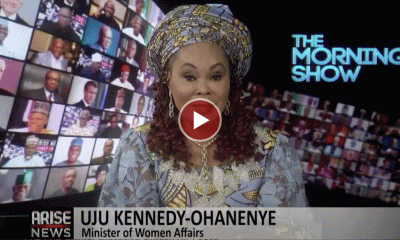Bureau of Public Enterprise
FG secures World Bank’s $500 million loan for electricity sector
The federal government has secured a $500 million World Bank loan to enhance power distribution in the electricity sector, following last month’s tariff increase for top consumers across the country.
The Bureau of Public Enterprise (BPE) announced on Thursday that the World Bank approved the loan in 2021, and it was included in the government’s borrowing plan this month after achieving certain milestones.
The concessionary loan is intended to enhance the financial and technical performance of distribution companies, which have struggled to increase capacity over a decade after Nigeria privatized its electricity sector.
Backstory
In 2021, the World Bank approved $500 million to support Nigeria in improving electricity distribution in the country.
The initiative will ensure that electricity distribution companies make the necessary investments to rehabilitate networks, install electric meters for more accurate customer billing, and improve the quality of service for those already connected to the grid.
Last month, the Nigerian Electricity Regulatory Commission (NERC) raised tariffs for Band A consumers who enjoy a minimum of 20 hours of electricity daily, as the government seeks to reduce subsidies and alleviate pressure on public finances.
However, this policy has been opposed by stakeholders, businesses, labour and trade unions and members of the public.
The Abuja Chamber of Commerce and Industry (ACCI) had complained of the hike saying it threatened the long-term viability of businesses.
On the other hand, the Organised Private Sector (OPS) in Nigeria stated that the hike in electricity tariff could result in the closure of about 65% of businesses in the country.
It noted that the current tariff rate places Nigeria just below the United States and Germany as the country with the highest electricity tariff in the world.
Furthermore, the Nigeria Labour Congress (NLC), and other affiliate labour unions in the country have protested the hike in electricity tariff stating it is anti-people and calling for a reversal.
Currently, there is a stand-off between electricity distribution companies and manufacturers as the latter has called on its members not to pay the current tariff. The Manufacturers Association of Nigeria (MAN) have lodged a complaint against discos with the regulatory agency NERC praying for a reversal in the new electricity tariff.
The Discos on the other hand have threatened to pull the plug on electricity connection to manufacturers should they refuse to pay the new tariff rate.
FG’s electricity subsidy
An earlier report by Nairametrics revealed that the federal government would spend around N1.67 trillion on electricity subsidy in 2024- an increase of 170% compared to the figure spent earlier in the previous year.
The World Bank has previously recommended subsidy cuts to help Nigeria improve its public finances. Nigeria’s electricity sector is plagued by numerous issues, including a failing grid, gas shortages, high debt, and vandalism. Despite having an installed capacity of 12,500 megawatts, the country produces only about a quarter of that, leaving many Nigerians dependent on costly diesel-powered generators.


















